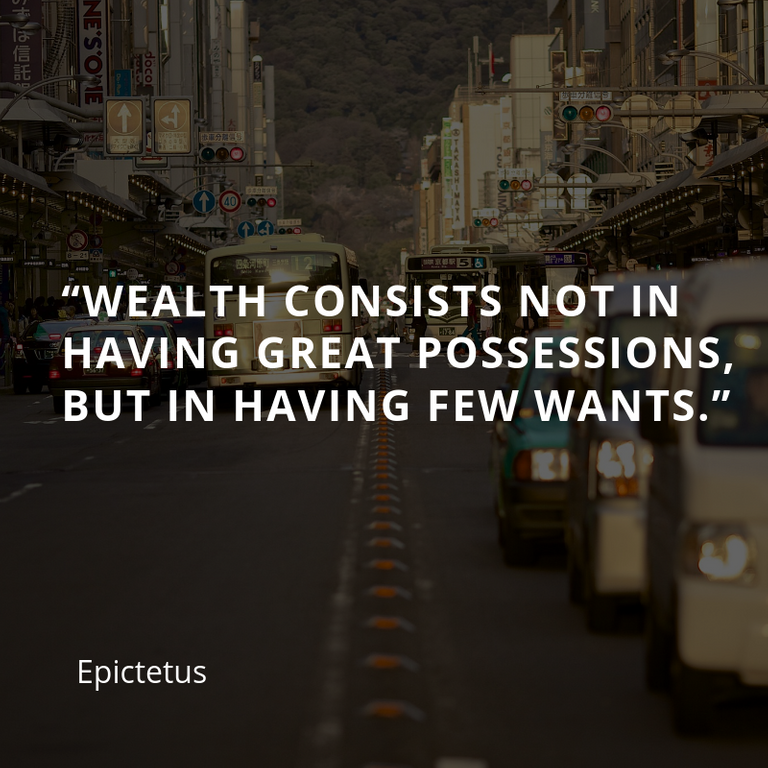
“Wealth consists not in having great possessions, but in having few wants.”
I immediately relate this to how we live in a hyper-consumerist society where too many people feel as though they can find meaning in the hoarding of possessions. This is a pitfall I believe because the pleasure or the wealth attained from these things is only a momentary thing, and it, in fact, can take the pleasure away from more natural things such as love and friendship.
It is my opinion that less is more because the authentic pleasure you can get from little, is more sustainable and lasts longer than the instant pleasure that you get from buying a new car or amassing a posse of fake friends who only want you for social climbing or your material wealth.
Wealth is being content with less, and in today's age, this is a really rare characteristic, because it isn't easy to reach this viewpoint while we are subjected to marketing and a herd-like mentality on a day to day basis.
So my advice is to start simple, start writing three things you are grateful for every day, but keep them simple - whether it is people, nature-related or a quality about yourself that you are grateful for (after all, self-love is essential for a wealthy life).
Also, you could try minimalism, it isn't for everyone, but it actually allows you to appreciate possessions in a different light, and actually not having many forces you to problem solve, and to develop virtues which you may not get the opportunity to do when you have a lot of stuff.
It will be difficult, it will seem meaningless at first in this world of consumerism, but eventually, I am certain that it will pay off and less is actually FAR MORE in a wealth sense.
Have a wonderful week!
Who was Epictetus?

Born into slavery 55AD Epictetus is the famous Stoic of whom is most influenced by God, or the Greek Gods as they were in those times. His slave master was very fond of him and allowed him to study philosophy in his spare time, and this is when he was exposed to the ‘Stoa’ teachings by his mentor Musonius Rufus. Epictetus gained freedom from slavery shortly after Emperor Nero’s death and subsequently began teaching philosophy. He taught stoicism for the rest of his life, even when forced to leave Rome as philosophers were banned in Rome, he simply moved to Greece and taught for his remaining days until he died in 135AD. His tao is spread over a few books, each of which is harder reads when compared to Aurelius or Seneca’s writings.